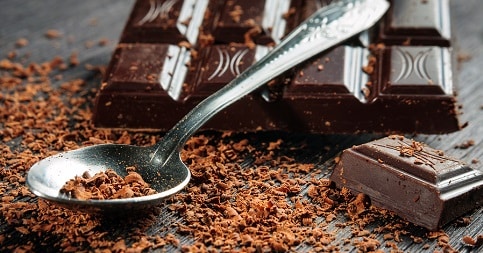| Eat more fiber |
A recent study found that people who were simply asked to eat more fiber (30 grams a day from food, not supplements) lost almost as much weight as those asked to follow a more comprehensive eating plan with over a dozen different directives. Plus, researchers found that by focusing on fiber alone, the participants naturally ate fewer fatty and sugary foods, because those were “crowded out” by fiber-rich choices. To try doing this yourself, up your intake of fresh veggies and fruit, especially those with edible stalks, skins, membranes, and seeds (e.g. broccoli, artichokes, raspberries, apples, and oranges); snack on nuts and seeds; switch from refined grains (like white rice) to whole grains (brown or wild), and make pulses—that is, peas, lentils, and beans—menu staples by adding them to salads or serving them a side dish to an omelet, in a soup, or as a bed for grilled fish.
| Nix diet drinks and artificial sweeteners |
The artificial sweeteners found in popular diet sodas may actually increase cravings for sweets overall. Artificial sweeteners have also been shown to disrupt gut bacteria in ways that may up the risk of obesity. Can’t seem to kick your soda habit? Try doctoring water up by adding in lemon or lime, sprigs of fresh mint, fresh grated ginger, or a bit of mashed fruit.
| Swap some of your starches for non-starchy veggies |
For instance, rather than a cup of cooked whole-grain penne, cut back to a half-cup, and add a quarter-cup each of fresh spinach, chopped tomato, sliced mushrooms, and minced onion. This switch will save you about 15 grams of carbohydrate and increase the volume of your meal so you actually feel fuller after eating it. Other ways to cut back on carbs without cutting them out completely include ordering a chopped salad with a small scoop of quinoa or chickpeas in it, rather than a wrap, and using lettuce in place of a bun for your burger paired with a small side of starch, like baked sweet potato “fries.”
| Make dark chocolate your dessert |
This one change can potentially shave hundreds of surplus calories from their diets each week, and help you start to slim down as a result. Half of a three-ounce bar of dark chocolate contains just 200 calories and 21 grams of carbs. Compare that to a chocolate-chip cookie from Panera bread (440 calories, 58 grams of carbs) or chocolate croissant from Starbucks (370 calories, 46 grams of carbs). Bonus: Research has shown that making dark chocolate a daily treat can help curb cravings for both sweet and salty foods.
| Cut back on booze |
In addition to the calories they add to your diet—way more than you probably think—alcoholic beverages tend to be major diet derailers. After a drink or two, it’s tempting to suddenly adopt an “Oh, forget it” attitude about eating, and wind up not only nibbling on foods within arm’s reach (chips and salsa at a restaurant, pretzels at the bar), but also eating foods they wouldn’t reach for sober, and downing much larger portions to boot. You don’t have to become a teetotaler to shed pounds, but consciously cutting back to, say, one night per week, setting a max of two drinks, and downing a tall glass of water with every cocktail can help you shed serious pounds.
Small changes. Big results.
Want more ideas? Call a Mediplan consultant or click the Schedule an Appointment button at the top of this page now to plan a time for us to discuss small ways you can change your lifestyle in order to change your life!

